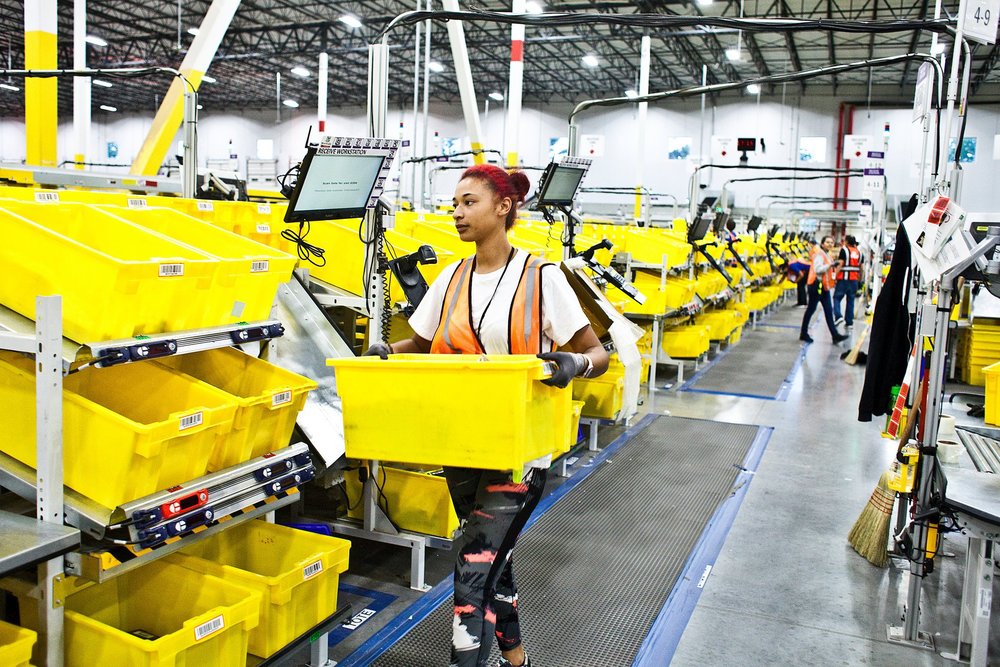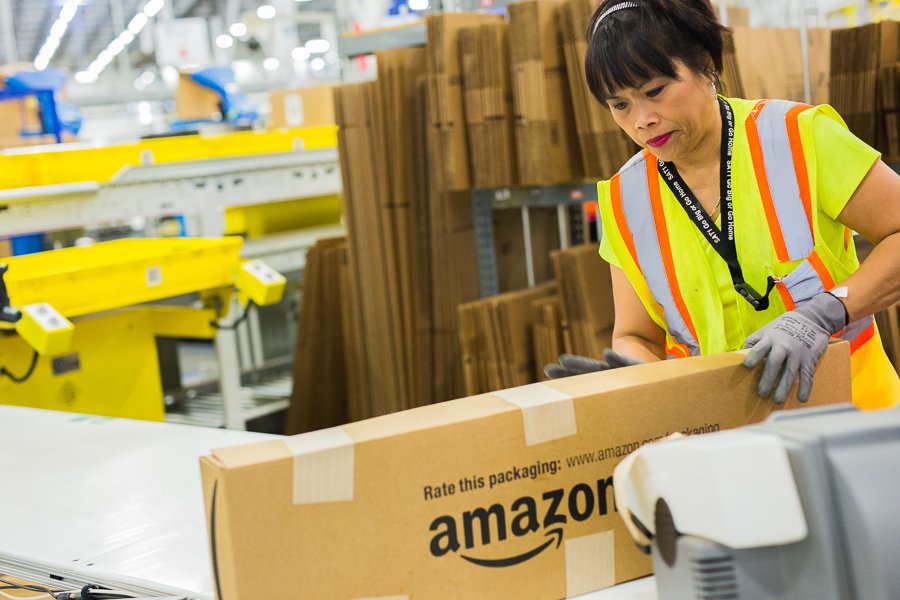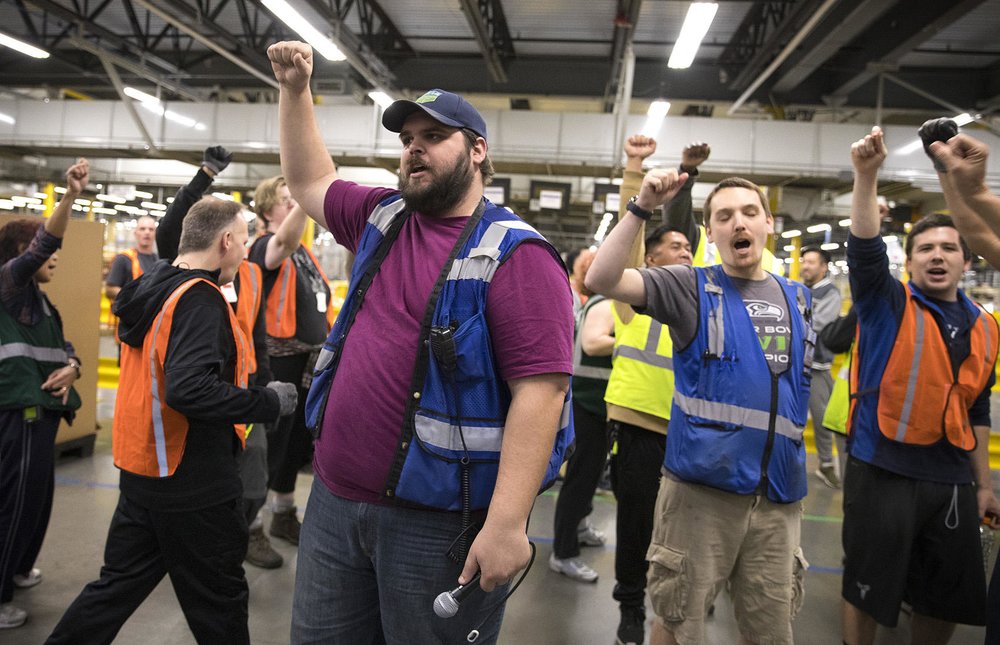Amazon founder Jeff Bezos is one of the world’s wealthiest people with a net worth of about $112 billion (£78 billion), but at least some of those working on his warehouse floors are apparently so desperate to keep their jobs that they don't even take time to use a restroom.
The author James Bloodworth went undercover at an Amazon warehouse in Staffordshire, UK, for a book on low wages in Britain. He found that the warehouse's fulfillment workers, who run around Amazon's massive warehouses gathering products for delivery, had a "toilet bottle" system in place because the bathrooms were too sparse to get to quickly.

The building that Amazon uses for warehouses have bathrooms that are literally floors apart
Bloodworth told The Sun that for those who worked on the top floor, the closest toilets were down four flights of stairs and because of this, people just peed in bottles because they lived in fear of being disciplined over 'idle time' and losing their jobs just because they needed the restroom.
It is known that Amazon tracks how fast its warehouse workers can pick and package items from its shelves, imposing strictly timed breaks and targets. It issues warning points as well for those who don't meet its goals or who take extended breaks.
Efficiency is the standard protocol
A separate survey found almost three-quarters of UK fulfillment-center staff members were afraid of using the toilet because of time constraints. A report released Monday with the survey's findings said 241 Amazon warehouse employees in England were interviewed. The survey anonymously quoted one person as saying targets had suddenly increased dramatically and that the worker did not drink water because of lack of time to go to the toilet

Bloodworth went undercover to see the worker's working conditions in the Amazon warehouse
Another says their target gets bigger and bigger every year. They are only humans with two legs and two arms, yet they need to run and go to the toilet just during the break. Packing 120 products per hour are terribly heavy. They have to pack two products per minute. They do not have time to drink water because they go to the toilet after every evening sends messages to the scanner with the target and tells them to hurry.
The survey, compiled by the worker campaign platform Organise, also found that respondents said they felt considerably more anxious after joining Amazon. Another employee even said that she was ill while pregnant and yet she was still given a warning.
And yet another said, "I turned up for my shift even though I felt like horrible, managed 2 hours then I just could not do anymore. Told my supervisor and was signed off sick, I had a gastric bug (sickness and diarrhea, very bad) saw my doc. Got a sick note with an explanation, but still got a strike."
Amazon responds to complaints
Amazon disputed the allegations. The company said in a statement to Business Insider that they provided a safe and positive workplace for thousands of people across the UK with competitive pay and benefits from day one. They also said that they have yet to receive confirmation that the people who completed the survey worked at Amazon and they don't recognize these allegations as an accurate portrayal of activities in their buildings.

Amazon vehemently denies these claims and they do not recognize the surveys as they have received no confirmation of the survey-takers being Amazon employees in the first place.
They also claim to have a focus on ensuring they provide a great environment for all their employees and last month Amazon was named by LinkedIn as the 7th most sought-after place to work in the UK and ranked first place in the US. Amazon also offers public tours of its fulfillment centers so customers can see first-hand what happens after they click 'buy' on Amazon.
Amazon said it didn't time workers' toilet breaks and set its performance targets based on previous worker performance. The company said it provided coaching to help people improve and used "proper discretion" when it came to sick leave and absences from work. Whatever the case may be, one must always consider not only the pay when choosing a job but also the environment and how your employers treat you.
